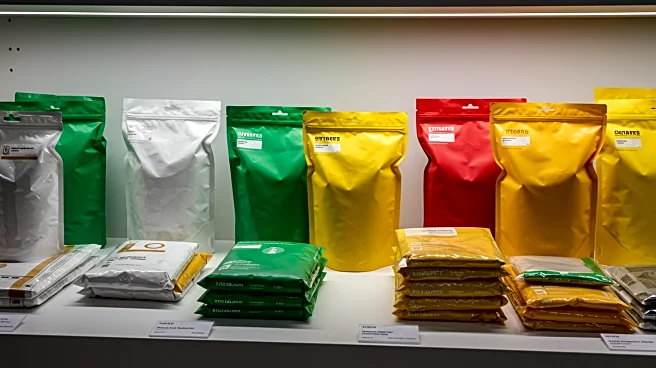What's Happening?
The global flexible film market, valued at USD 115.4 billion in 2023, is expected to grow to USD 167.3 billion by 2030, driven by a CAGR of 5.4%. Flexible films, made from polymers like BOPP and polyester, are increasingly replacing rigid packaging due to their superior properties. Innovations in recyclability and bio-based materials are enhancing their appeal. Major players like Amcor and Mondi are introducing eco-friendly films, while Dow Chemical is launching resins with recycled content. Asia-Pacific leads production, with Europe and North America following due to sustainability regulations and technological advancements.
Why It's Important?
The growth of the flexible film market highlights the shift towards sustainable packaging solutions, driven by global mandates to reduce single-use plastics. This trend presents significant opportunities for manufacturers to invest in recyclable and biodegradable films, particularly in the food packaging sector. The market's expansion is crucial for industries seeking to balance performance with environmental responsibility. As demand for advanced packaging solutions rises, companies that innovate in this space stand to gain competitive advantages, potentially reshaping the packaging industry landscape.
What's Next?
The flexible film market's trajectory suggests continued investment in sustainable materials and technologies. Companies may focus on developing intelligent packaging with embedded sensors and expanding applications in electronics and agriculture. Challenges such as raw material price volatility and recycling complexities will require strategic responses. Regulatory scrutiny may increase, prompting further innovation in eco-friendly solutions. Stakeholders will likely explore collaborations and partnerships to address these challenges and capitalize on emerging opportunities.










